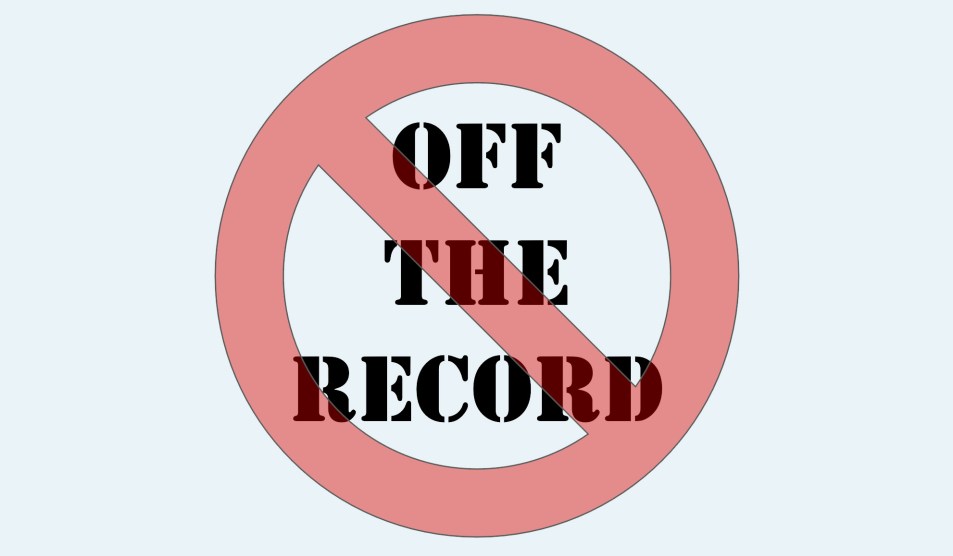
Technology journalist Brian Merchant says he’s tired of PR flacks from tech companies refusing to talk unless it’s off-the-record:
After my experience with Amazon, I decided that on all matters of importance, I am no longer going to listen to a public relations representative try to change my mind on background with unquotable statements attributable to no one. No reporter should, not when the stakes are as high as they are. If an actual source—an engineer, or a policymaker—wants to go on background for protection, that’s one thing. But a spokesperson should either go on the record or get off the phone.
I get that day-to-day journalists have a different job than I do. They need responses from tech companies when they write about them, and they genuinely want to hear both sides of a story. Nevertheless, it’s inconceivable to me that they routinely let companies get away with this. And not just tech companies, either. This goes for everyone. As Merchant says, a background briefing allows a company flack to say anything without being held accountable. They can fill your mind with any kind of nonsense as a way of trying to change what you write, and it’s all but impossible to check out the truth of what they’re saying.
I have long refused to talk to anyone on background. Obviously this is pretty easy for me, especially since I don’t talk to very many people in the first place. But the truth is that corporate PR shops aren’t very useful even when they do talk on the record, and little is missed if you give up the routine practice of “asking for comment” on every story. Inevitably, the comment is either “no comment” or “we deny it.” Who needs it?
Either talk on the record or shut up. Those should be your choices.













